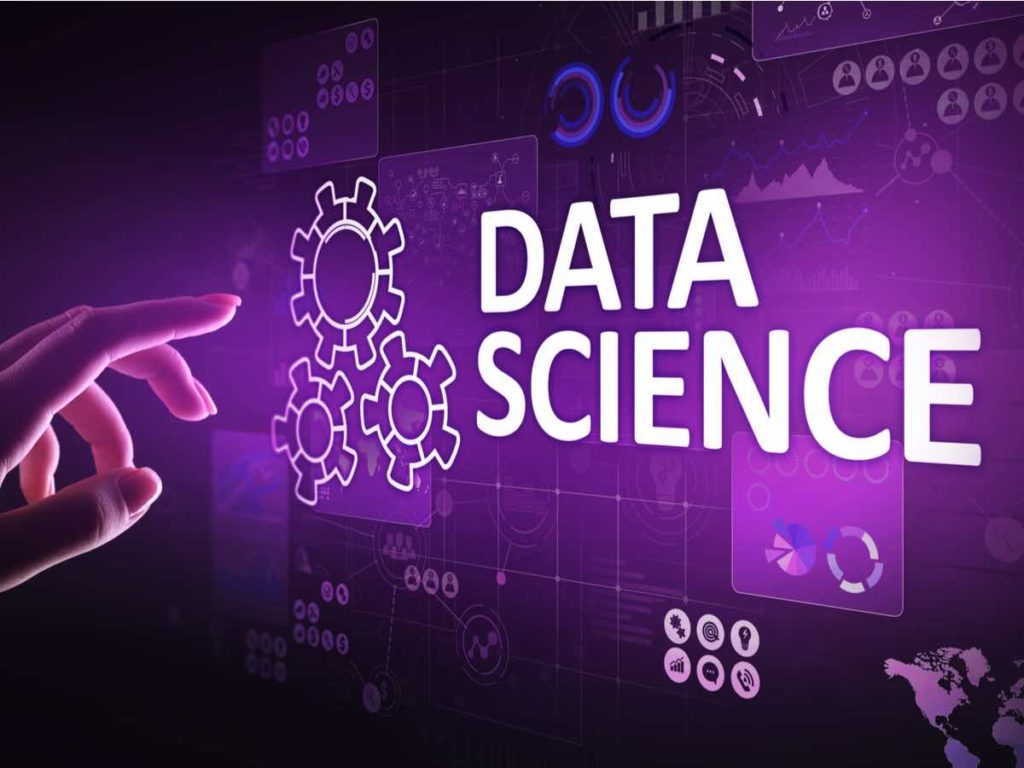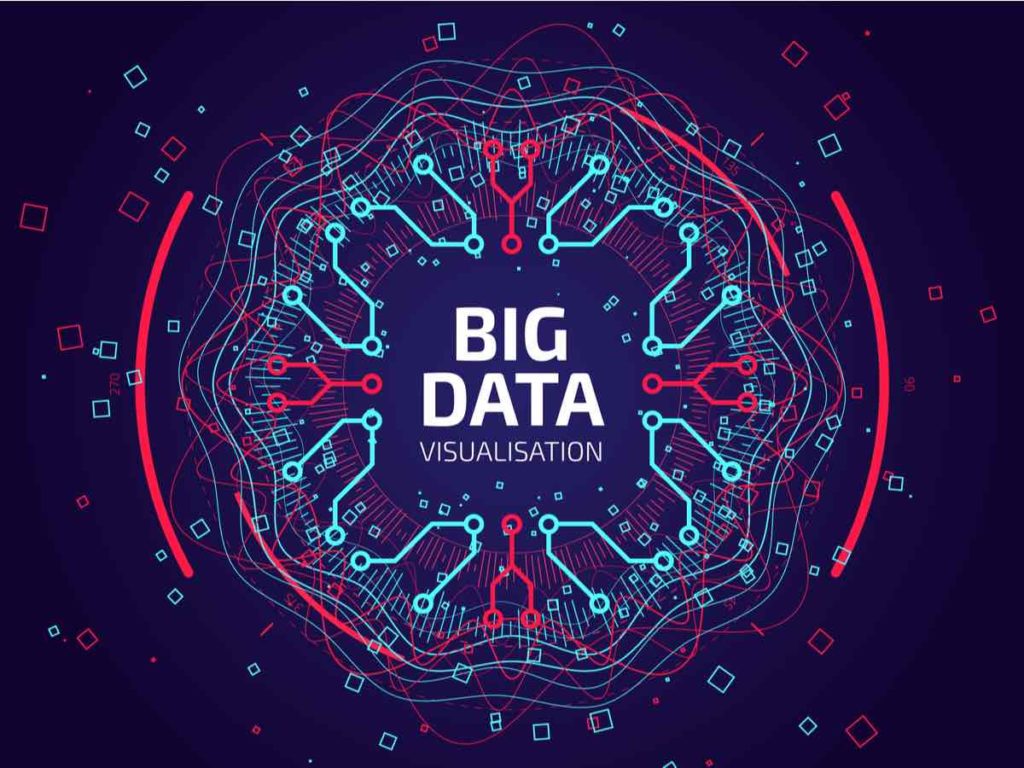Here’s Why Data Science Major is Hard
Data scientists, on average, make $98,230 per year — the best-paid 25% of data scientists working in the United States make not less than $130,370 per year.
With more than 13,500 openings available for individuals with a degree in data science, it isn’t surprising that the job outlook for them is 36%, which is much faster than average for all occupations in the country.
Because data science is a competitive tech industry where only the most competitive job candidates are hired by many employers, college students who are majoring in it are given by their schools a solid foundation in computer science, math and statistics.
Statistics show that up to 91% of data scientists have graduated from college.
Want to work as a data scientist or a related professional someday but fear that data science is too difficult a major?
Make sure that you keep reading this post — I will tell you everything you need to know about the said branch of computer science.

Is Data Science a Hard Major
Because data science is a fast-growing and high-demand career, core courses in a bachelor’s program in data science can prove to be challenging.
This is especially true since data science majors have to develop hard skills such as data mining and machine learning and soft skills such as communication and business.
Depending on the school or program, some common data science core courses may include:
- Data management and applications
- Data mining and analytics
- Data science applications
- Data structures and algorithms
- Data visualization
- Database systems
- Discrete mathematics
- Machine learning
Before these difficult upper-level courses have to be taken, data science majors should first take some general education (gen ed) and pre-requisite lower-division courses that provide foundational knowledge in data science.
Some of these courses may include the following:
- Calculus
- Computer programming
- Geometry
- Linear algebra
- Statistics
Needless to say, if computer operating systems and coding as well as mathematics are not your strongest suits, you might want to consider looking for a different major than data science.
In order to gain skills that you can flaunt when it’s time to look for a job after graduation, consider choosing a minor that complements your data science major. Some popular ones among those who actually major in it are:
- Accounting
- Business
- Communications
- Computer science
- Environmental science
- Information technology
- Networking and information systems
- Philosophy
- Physics
- Programming
- Psychology
- Public Speaking
- Urban Studies

Data Science Major and Degree Myths
Data science is one of the fastest-growing occupations. As a matter of fact, the projected job growth for data scientists from 2022 to 2030 is over 30%, which is so much faster than average.
However, its booming has led to a number of myths and misconceptions about the profession that are worth debunking.
It was only in the early 2000s when data science was first used in a publication by William Cleveland, who is a computer science professor at Purdue University.
Because it’s relatively new, not too many people are aware of what it really is.
When looking up data science online, it’s not unlikely for you to come across some fallacies about it.
And if you are thinking about adding it to your list of potential college majors, chances are that you may have second thoughts because of the erroneous things being said about data science as a major and a career.
Let’s quickly take a look at some of the most common myths and misconceptions about data science and debunk them, too, so that you won’t have any doubts should you decide to major in it:
Data science majors are nerds
Because of the field in which data science belongs, you can rest assured that there will be nerds majoring in it.
But that shouldn’t be a problem if you don’t want to be identified as one — based on a 2012 Harvard Business Review article, data science is the sexiest job of the 21st century.
You have to be a math whiz to be a data science major
While it’s true that you will need to have knowledge in statistics and probability, having a supercomputer for a brain isn’t a requirement.
It’s far more important for data scientists to be able to know how to solve and communicate problems. Besides, you can always count on advanced software programs when it’s time to crunch the numbers.
Coding is a data scientist’s must-have skill
Believe it or not, the day-to-day tasks of data scientists involve very little to no coding. As a matter of fact, many of today’s data scientists started out with zero background or experience in computer programming.
But in order to be able to enjoy more career options, it’s a wonderful idea for data science majors to minor in coding or a related field.
AI will eventually replace data scientists
Soon, chances are that some of the everyday activities of data scientists will be replaced by artificial intelligence (AI).
Despite this, it’s very much likely for businesses and organizations to put their trust more in data scientists themselves, who are capable of giving solid judgment and possessing vast knowledge in data science than AI.
Data scientists are useless to small businesses
Most people picture data scientists as employees of massive corporations.
But the fact is that data scientists can also be extremely beneficial for small businesses and corporations, allowing them to leverage data science insight to know which of their products or services can convert more customers.

How to Get Into Data Science
Data science is a competitive field.
Those who wish to become data scientists one day may choose from associate, bachelor’s, master’s and doctoral degrees. Also available to students are data science certification and bootcamps.
It’s not enough that you are certain you want to become a data scientist one day — it’s also important to figure out just what type of data science job you wish to have exactly.
Doing so will allow you to determine which particular data science degree is right for you, such as:
Associate degree in data science
Degree-seeking students who are targeting various entry-level data science jobs can pursue their goals in no time by getting their hands on an associate in data science, which takes around two years to complete.
Especially if the degree is obtained from a regionally accredited school, the holder is already halfway to having a bachelor’s in data science.
Bachelor’s degree in data science
Most employers who are looking to fill data science job positions prefer candidates with at least a bachelor’s in data science.
Bachelor’s in data science holders tend to make almost 30% more money per year than those with an associate degree.
In addition, those with a bachelor’s in data science tend to enjoy up to 24% more in lifetime earnings.
Master’s degree in data science
Individuals who are thinking about taking on managerial or leadership roles in the workplace may consider earning a master’s in data science, which can take between one and two years to complete.
Master’s in data science holders usually end up being business analysts, business intelligence developers and machine learning engineers.
Doctorate degree in data science
A doctorate in data science can prove to be useful in both academia and the data science industry.
As a matter of fact, most employers who are looking to fill high-level data science jobs look for candidates with a doctorate in the discipline.
Unfortunately, it can take a long time to earn a doctorate in data science — between four to five years.
Certificate in data science
Professional data scientists who wish to apply for a promotion or higher-paying jobs typically work on a certificate in data science in order to bolster their skills and credentials.
Usually, only those with a bachelor’s degree are eligible to earn a certificate in data science, which only takes around a year to complete and is cheaper than a master’s degree.
Data science bootcamps
Simply put, data science bootcamps are short-term, project-based learning programs that provide students with some of the most in-demand knowledge and skills in the data science industry.
Some programs can take three to six months to complete, while there are nine-month-long ones. The cost can range anywhere from $7,000 to $18,000.
What Can You Do With Data Science Degree
Most employers prefer data scientists with a master’s in data science. Those who hire candidates with a bachelor’s like it if they have previous work experience and additional training.
Majoring in data science allows degree-seeking students to choose from a variety of data science-related career paths.
Armed with a bachelor’s in data science, the following are some of the most lucrative job options for you:
Machine learning engineer
- Median annual salary: $150,000
- Job outlook in 10 years: 11%
Simply put, machine learning engineers are responsible for coming up with the algorithms for machine-learning projects. They are often considered a cross between software engineers and data scientists.
And it’s exactly because of this why data science majors are some of the most qualified individuals to work as machine learning engineers.
According to Forbes machine learning engineering is the best job in the US. Having good communication skills is vital as machine learning engineers tend to work as a part of a larger team of data analysts, data administrators, etc.
Data analyst
- Median annual salary: $82,326
- Job outlook in 10 years: 25%
The job title makes it clear what data analysts do — collect and interpret data in order to answer questions, solve problems and fend off potential issues.
Many industries take advantage of data analysts, including especially those that rely on sensitive data for their day-to-day operations, from businesses to governmental agencies.
While some employers hire data analysts with an associate degree or a high school diploma but with training and work experience, individuals with at least a bachelor’s degree in a related field are commonly preferred.
Data Engineer
- Median annual salary: $97,874
- Job outlook in 10 years: 32%
Data scientists and analysts count on data engineers.
That’s because data engineers are the ones tasked with coming up with systems for collecting, managing and converting raw data into usable information.
So, in a nutshell, what they are responsible for is making data accessible to the rest of the hardworking team.
Other than having at least a bachelor’s in computer science, software engineering, data science or a similar degree, data engineers must also have important skills such as critical thinking, communication and attention to detail.
Database administrator
- Median annual salary: $98,860
- Job outlook in 10 years: 8%
Besides creating, organizing and maintaining systems used for storing and securing important data for businesses and organizations, database administrators also check that data is accessible to authorized personnel.
Basically, database administrators are tasked with making sure that sensitive data is out of harm’s way.
In order to become database administrators, individuals should have at least a bachelor’s degree in a related field, including data science and computer information technology. Some have undergraduate degrees in engineering and business.
Computer and information systems manager
- Median annual salary: $159,010
- Job outlook in 10 years: 11%
Planning, coordinating and directing various computer-related activities in a business or organization — such is the primary role of computer and information systems managers.
While they work full-time, it’s not uncommon for computer and information systems managers to work overtime or during weekends if problems come into being.
A bachelor’s in numerous computer- and information technology-related degrees are required by the majority of companies.
Some, however, may prefer individuals with a master’s degree in closely related fields.

Computer systems analyst
- Median annual salary: $99,270
- Job outlook in 10 years: 7%
It’s when businesses and companies require improvement or updating of the computer systems they use when computer systems analysts step into the scene.
Needless to say, they are the ones that help make daily operations run more efficiently. Computer systems analysts are also sometimes referred to as systems architects.
Because of the fact that it’s the business side of things that they specialize in, it’s a huge plus for data science majors working as computer systems analysts to have minored in business management or administration.
Information security analyst
- Median annual salary: $102,600
- Job outlook in 10 years: 33%
Business enterprises, consulting firms, financial companies and similar entities are those that need information security analysts the most.
That’s because these professionals are the experts when it comes to the designing and implementation of security measures necessary to protect computer networks and systems.
The employment rate for information security analysts between 2020 and 2030 is projected to grow by 33%, which is so much faster than the expected growth rate for all occupations (8%).
Computer network architect
- Median annual salary: $120,520
- Job outlook in 10 years: 5%
Despite the job title, computer network architects are not real architects. Rather, they are experts in designing and building data communication networks, which is why they usually have computer- and IT-related degrees.
Since it’s their task to plan and create local area networks (LANs), wide area networks (WANs) and intranets, computer network architects must have strong networking skills.
Because they usually have to work with other experts in the field, it’s also important for computer network architects to have very good communication and team-playing skills.
Best Schools for Data Science Majors
Currently in the process of building a college list?
If you are planning on majoring in data science, feel free to consider shortlisting one or a few of the following institutions with data science programs:
| INSTITUTION | TUITION AND FEES |
| University of California – Berkeley | $14,361 (in-state) and $44,115 (out-of-state) |
| Carnegie Mellon University | $58,924 |
| Massachusetts Institute of Technology | $55,878 |
| Stanford University | $56,169 |
| University of Washington | $12,076 (in-state) and $39,906 (out-of-state) |
| Cornell University | $61,015 |
| Georgia Institute of Technology | $12,682 (in-state) and $33,794 (out-of-state) |
| Columbia University | $63,530 |
| University of Illinois – Urbana-Champaign | $16,866 (in-state) and $34,316 (out-of-state) |
| University of Michigan – Ann Arbor | $16,178 (in-state) and $53,232 (out-of-state) |
| California Institute of Technology | $58,680 |
| University of California – Los Angeles | $13,268 (in-state) and $43,022 (out-of-state) |
| University of California – San Diego | $14,733 (in-state) and $44,487 (out-of-state) |
| University of Wisconsin – Madison | $10,720 (in-state) and $38,608 (out-of-state) |
| University of Texas at Austin | $11,448 (in-state) and $40,032 (out-of-state) |
| Harvard University | $55,587 |
| New York University | $56,500 |
| University of Pennsylvania | $61,710 |
| Duke University | $60,489 |
| Princeton University | $56,010 |
It’s not uncommon for many professionals to want to earn a data science degree for promotion or eligibility for higher-level and higher-paying jobs. If you are one of them, you might want to consider earning a degree in data science online.

Top 5 Online Schools for Data Science Majors
Here are some of the best accredited online schools with data science programs for non-traditional students:
Southern New Hampshire University
- Location: Manchester, New Hampshire
- Cost: $320.00 per credit hour
- Accreditor: New England Commission of Higher Education (NECHE)
- Acceptance rate: 94%
- Average starting salary: $41,400 per year
University of Massachusetts Global
- Location: Irvine, California
- Cost: $500.00 per credit hour
- Accreditor: WASC Senior College and University Commission (WSCUC)
- Acceptance rate: 89%
- Average starting salary: $41,500 per year
State University of New York (SUNY) at Albany
- Location: Albany, New York
- Cost: $358.84 (in-state) and $416.84 (out-of-state) per credit hour
- Accreditor: Southern Association of Colleges and Schools Commission on Colleges (SACSCOC)
- Acceptance rate: 57%
- Average starting salary: $38,900 per year
Saint Louis University
- Location: Saint Louis, Missouri
- Cost: $349.00 per credit hour
- Accreditor: Higher Learning Commission (HLC)
- Acceptance rate: 56%
- Average starting salary: $44,500 per year
Norwich University
- Location: Northfield, Vermont
- Cost: $375.00 per credit hour
- Accreditor: New England Commission of Higher Education (NECHE)
- Acceptance rate: 74%
- Average starting salary: $39,000 per year
Is Data Science a Good Major
As of this writing, data scientists make a median salary of $98,230 per year — the highest-paid 25%, in fact, make at least $130,370 per year.
That’s a lot of money, which is why you may be considering enrolling in a bachelor’s program in data science. And this makes data science a great major.
Data science is a competitive field, which is why recruiters and employers are looking for the best candidates only.
This is exactly why data science is a hard major, especially since the goal is to equip students with the skills necessary for them to qualify for data science jobs and various related ones.
If you want to become a successful and well-paid data scientist one day or a professional in a closely related field, then you should be willing to face the many challenges of majoring in data science.
But with enough passion for data science and by keeping your eyes on the prize, you can conquer it!
Read Next: Is Information Systems a Good Degree?
Disclaimer: The views and opinions expressed in this article are those of the authors and do not necessarily represent those of the College Reality Check.





